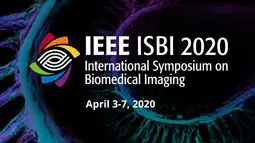Image-Domain Material Decomposition Using an Iterative Neural Network for Dual-Energy CT
Zhipeng Li, Il Yong Chun, Yong Long
-
Members: FreeSPS
IEEE Members: $11.00
Non-members: $15.00Length: 14:51
03 Apr 2020
Image-domain material decomposition is susceptible to noise and artifacts in dual-energy CT (DECT) attenuation images. To obtain high quality material images from DECT, data-driven methods are attracting widespread attention. Iterative neural network (INN) approaches achieved high image reconstruction quality and low generalization error in several inverse imaging problems. BCD-Net is an INN of which architecture is constructed by generalizing a block coordinate descent (BCD) algorithm that solves model-based image reconstruction using learned convolutional regularizers. We propose a new INN architecture for DECT material decomposition by replacing a model-based image reconstruction module of BCD-Net with a model-based image decomposition (MBID) module. Experiments with the extended cardiactorso (XCAT) phantom and patient data show that the proposed method greatly improves image decomposition quality compared to a conventional MBID method using an edge-preserving hyperbola regularizer and a state-of-the-art learned MBID method that uses different pre-learned sparsifying transforms for different materials.



